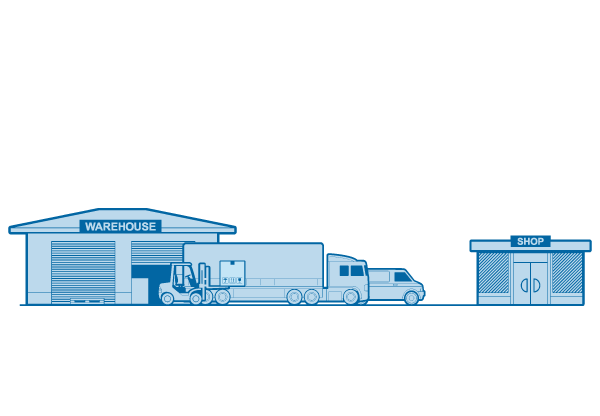Location Types in Freight Shipping
How pick-up and delivery location types affect freight services and pricing

In freight shipping, where you’re shipping from and to matters almost as much as what you’re shipping. Carriers group locations into several common types (business with dock, business without dock, residential, limited access, and trade show), and each type has its own requirements for truck access and loading/unloading equipment.
In this guide, you’ll learn how carriers classify different pickup and delivery locations, how each type affects pricing and service, and how to choose the correct location type when quoting to avoid extra fees or delays.
This Freight Shipping Guide has been created by Freightera’s logistics team (20+ years of combined experience) and reviewed by co-founder and editor-in-chief Zhenya Beck. Our goal is to help you quote with the right locations correctly from the start, to avoid surprises like missed pickups, redelivery, or unexpected residential and limited-access fees.
